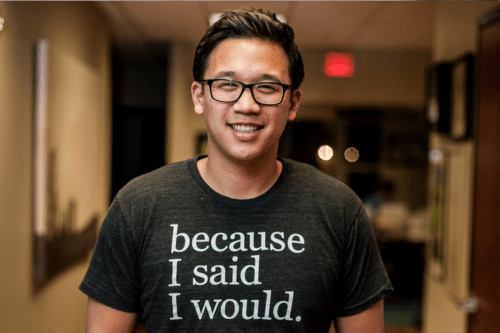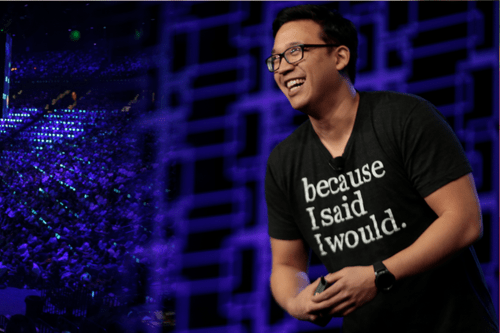In May 2023, the American Montessori Society community gathered virtually for our annual meeting. The meeting was an exciting opportunity for AMS members to learn about the organization’s initiatives, accomplishments, and ways to become more involved in the Montessori community.
We were also pleased to invite in keynote speaker Alex Sheen, five-time TEDxTalk speaker, author, and the founder of because I said I would, a social movement and nonprofit dedicated to the betterment of humanity through promises made and kept. Alex shared the importance of honoring the commitments and goals we set as individuals and professionals.
Anita Hanks:
Montessori and the concepts presented in your book, Because I Said I Would, align in several ways. In Montessori, we emphasize the importance of self-awareness, personal responsibility, and accountability. Please share how those play a role in keeping one’s promise.
Alex Sheen:
Often, we underestimate the weight of our commitments. We say yes to small tasks or make assurances and then forget, not recognizing the impact our broken commitments can have on the lives of others. This lack of awareness undermines the trust others have in us, causing ripples that subtly, but tangibly, affect our relationships and communities.
Moreover, our societal outlook often paints accountability in a punitive light, as something to be feared or avoided. However, this narrow view overlooks the fact that we are not just accountable for the negative outcomes of our actions, but also for all the positive impacts we’ve made—the promises we’ve kept, the trust we’ve upheld, and the relationships we’ve strengthened.
Ultimately, cultivating self-awareness, fostering personal responsibility, and embracing accountability are all essential, not only to promise-keeping, but also to building a well-functioning, meaningful society.
Anita:
What happens when you break a promise?
Alex:
When a promise is broken, it’s more than just a letdown; it’s a ripple effect that can be harder to spot. The reality is, each broken promise subtly shapes our perception of accountability, self-control, and honesty in our homes, schools, and wider society. These values might start to seem less significant, less necessary to uphold. The problem is, we don’t always see these long-term effects immediately. Over time, though, a culture might evolve where these values are undervalued. Breaking a promise may seem small at the moment, but it’s part of a bigger picture that impacts how we collectively understand trust and integrity. Eventually society requires safeguards against this world of broken promises.
Anita:
How can we keep ourselves accountable in keeping our promises? Please share specific habits and tactics we can implement in our daily lives.
Alex:
The opinions expressed in Montessori Life are those of the authors and do not necessarily represent the position of AMS.


